8 start with I start with I
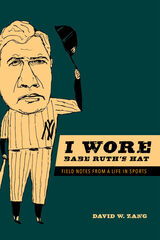
Whether pondering his long-unbuilt replica of Connie Mack Stadium or his eye-opening turn as the Baltimore Ravens' mascot, Zang offers tales at turns poignant and hilarious as he engages with the passions that shaped his life. Yet his meditations also probe the tragedy of a modern athletic culture that substitutes hyped spectatorship for participation. As he laments, American society's increasing scorn for taking part in play robs adults of the life-affirming virtues of games that challenge us to accomplish the impossible for the most transcendent of reasons: to see if it can be done.
From teammates named Lop to tracing Joe Paterno's long shadow over Happy Valley, I Wore Babe Ruth's Hat reports from the everyman's Elysium where games and life intersect.
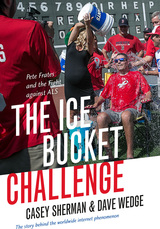

Ice-n-Go is a culmination of the breadth of knowledge and unique insight from Moshak’s more than twenty-five years of work in major college sports. in this highly readable new book, she covers social issues, medical concerns, motiva-tional techniques, gender roles and expectations, the impact of sports on our children, and how the body works, heals, and recovers. though she writes on serious subjects in a serious way, Moshak’s tone is always upbeat and positive with surprisingly simple strategies for improving the athletic experience for all, especially kids.
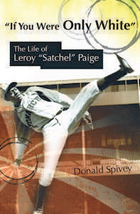
Spivey follows Paige from his birth in Alabama in 1906 to his death in Kansas City in 1982, detailing the challenges Paige faced battling the color line in America and recounting his tests and triumphs in baseball. He also opens up Paige’s private life during and after his playing days, introducing readers to the man who extended his social, cultural, and political reach beyond the limitations associated with his humble background and upbringing. This other Paige was a gifted public speaker, a talented musician and singer, an excellent cook, and a passionate outdoorsman, among other things.
Paige’s life intertwined with many of the most important issues of the times in U.S. and African American history, including the continuation of the New Negro Movement and the struggle for civil rights. Spivey incorporates interviews with former teammates conducted over twelve years, as well as exclusive interviews with Paige’s son Robert, daughter Pamela, Ted “Double Duty” Radcliffe, and John “Buck” O’Neil to tell the story of a pioneer who helped transform America through the nation’s favorite pastime.
Maintaining an image somewhere between Joe Louis’s public humility and the flamboyant aggression of Jack Johnson, Paige pushed the boundaries of segregation and bridged the racial divide with stellar pitching packaged with slapstick humor. He entertained as he played to win and saw no contradiction in doing so. Game after game, his performance refuted the lie that black baseball was inferior to white baseball. His was a contribution to civil rights of a different kind—his speeches and demonstrations expressed through his performance on the mound.
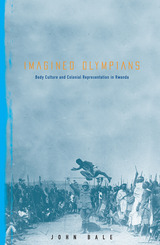

By the hundreds of millions we show up, stand in line, turn on, and tune in to watch, mesmerized, as athletes perform. And yet this experience, so widely craved and intensely felt, we commonly dismiss as “only a game.&rduqo; A book that looks beyond the usual explanations of why sports fascinates, In Praise of Athletic Beauty also strives for a language that can frame—even enhance—the pleasure we take in watching athletic events.
The vicarious thrill, anxiety release, competitive spirit: in place of these traditional answers to the mystery of sports’ allure, Hans Ulrich Gumbrecht proposes a more powerful and provocative alternative. The fascination with watching sports, he argues, is probably the most popular and potent contemporary form of aesthetic experience—in the classic, very literal sense of this concept. In exploring this idea, Gumbrecht develops a lucid reflection on the pleasures of sports spectatorship and the nature of athletic beauty. Where we might readily pronounce certain athletic moves and plays “beautiful,” this book gives us the means to explore, understand, and enjoy even more acutely the aesthetic experience that our words-in-passing barely suggest.
With a new perspective on the appreciation of—and, indeed, a new tone of praising—sports, Gumbrecht also offers a new way of narrating the history of athletics and a fresh vocabulary for analyzing various sports. Exploring athletic beauty, this book makes us understand the widespread passion sport inspires as an untamed form of aesthetic fascination.
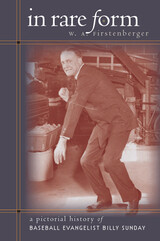
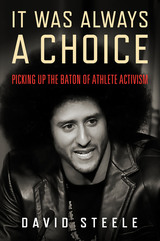
The recent flashpoint of Colin Kaepernick taking a knee renews a long tradition of athlete-activists speaking out against racism, injustice, and oppression. Like Kaepernick, Jackie Robinson, Paul Robeson, Muhammad Ali, Bill Russell, Tommie Smith, and John Carlos—among many others, of all races, male and female, pro and amateur—all made the choice to take a side to command public awareness and attention rather than “shut up and play,” as O. J. Simpson, Michael Jordan, and Tiger Woods did. Using their celebrity to demand change, these activists inspired fans but faced great personal and professional risks in doing so. It Was Always a Choice traces the history and impact of these decisive moments throughout the history of U.S. sports.
David Steele identifies the resonances and antecedents throughout the twentieth century of the choices faced by athletes in the post-Kaepernick era, including the advance of athletes’ political organizing in the era of activism following the death of George Floyd. He shows which athletes chose silence instead of action—“dropping the baton,” as it were—in the movement to end racial inequities and violence against Black Americans. The examples of courageous athletes multiply as LeBron James, Megan Rapinoe and the activist-athletes of the NBA, WNBA, and NFL remain committed to fighting daily and vibrantly for social change.
READERS
Browse our collection.
PUBLISHERS
See BiblioVault's publisher services.
STUDENT SERVICES
Files for college accessibility offices.
UChicago Accessibility Resources
home | accessibility | search | about | contact us
BiblioVault ® 2001 - 2024
The University of Chicago Press









